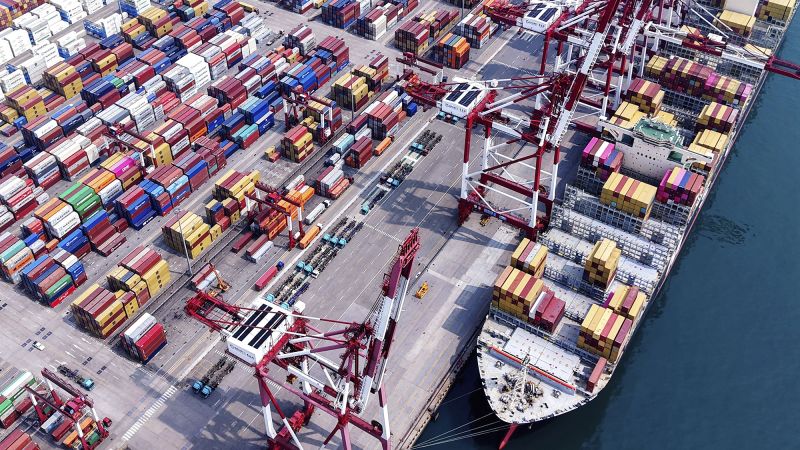In recent months, the turbulence caused by President Donald Trump’s trade policies has put immense pressure on small business owners across the United States. A significant change in policy, such as the implementation of steep tariffs on imported goods, has fundamentally altered the landscape for many who rely on global trade to sustain their operations. This tumultuous environment has become a test of resilience for many entrepreneurs and has significantly raised their operational costs.
One of the more affected companies is Busy Baby, run by Beth Fynbo Benike, an entrepreneur facing a stark increase in costs due to tariff rates on imported products from China. Initially imposed at 145%, tariffs were recently reduced to 30%. While this reduction sparked optimism and cheers in the market, Benike’s perspective is much more nuanced. She articulated her concerns through a viral TikTok video, demonstrating that even with a reduction in tariffs, the financial burden remains substantial. Her costs on shipments still exceed what they would have been only a couple of months prior, necessitating a $48,000 expenditure—an amount that looms significantly over her business operations.
The ‘slap and kiss’ analogy shared by Francine Farkas Sears encapsulates this sentiment perfectly. She is another small business owner adversely impacted by these drastic changes. Having been a pioneer in American business relations with China, she now faces potential ruin as rising costs threaten the accessibility of her products. She explained the implications of these tariffs, particularly how they threaten to inflate prices unimaginably for consumers relying on her products—such as cookies and accessories for Girl Scouts, with costs potentially ballooning to five times their current price if production were to be shifted back to the U.S.
The strain on smaller entities is compounded by the fact that larger corporations, like Walmart—the world’s largest retailer—are also struggling to absorb the increased costs associated with these tariffs. Their CEO recently pointed out that even Walmart’s complex supply chain and vast resources are insufficient to handle supply chain disruptions without passing on costs to consumers. This assertion underscores the vulnerability of smaller companies, which lack the same scope and resources.
As entrepreneurs grapple with the repercussions of trade policies, many have been forced to pivot and adapt to shifting global marketplace dynamics. Fynbo Benike, a veteran of the U.S. Army, is striving to manufacture locally, but costs associated with American production remain unfeasible. Her firm has found success in securing placements in retailers like Walmart and Target, yet the struggle is ongoing. She has also launched efforts to expand her production to European standards in case of future costs rising once again due to unforeseen tariff changes.
Meanwhile, the story of Katharine Burke, the founder of Purryfuls, illustrates how fragile business plans have become amid these policy fluctuations. After just achieving a milestone for her startup’s products aimed at stressed millennials and Gen Z consumers, Burke faced panic as her product launch coincided with an uncertain financial landscape. While her product shipment has also faced tariffs—initially at 145% but later reduced—she still must navigate the risks of chaotic customs processes and shipping delays exacerbated by recent tariff reductions that have led to backlogs in ocean freight.
Ultimately, the recent changes in tariff rates and the reasons behind them—stemming from US-China trade negotiations—have impactfully influenced the outlook for small businesses. The sharp fluctuations, witnessed first-hand by small business owners across the nation, raise fears of a volatile future as changes can rapidly turn on a dime. For entrepreneurs like Benike and Burke, it remains a critical balancing act between operational viability and financial sustainability amid a seemingly capricious trade policy. Adaptation, resilience, and creativity in business strategy are now essential qualities for survival in an unpredictable market shaped by the whims of national policy.



